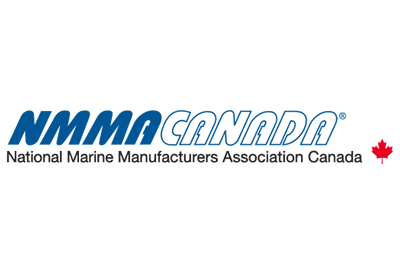NMMA Canada Stands Up for Rental Boat Businesses to Preserve Safety Checklist

Apr 13, 2021
In their April 1 NMMA Canada newsletter, the organization announced their position on the Rental Boat Safety Checklist that had recently come under question from Transport Canada.
Sara Anghel wrote that with the boost in popularity that recreational boating has enjoyed in Canada this past year, the need for modern marine security and safety regulations is more pressing than ever. The record numbers of novice boaters taking to the water has made the safety piece especially critical.
This past fall, Transport Canada began consulting on updates to the pleasure craft licensing and Pleasure Craft Operator Competency (PCOC) programs. The proposed changes included:
• Introducing a $15 service fee for pleasure craft licenses;
• Reducing the pleasure craft license validity period to five years from 10 years;
• Removing the Rental Boat Safety Checklist as an acceptable proof of competency and requiring anyone renting a boat to have a Pleasure Craft Operator Card (PCOC) or equivalent.
The boating industry shares Transport Canada’s goal of promoting a safe and enjoyable experience on the water for all boaters. That includes advancing sensible reforms to pleasure craft licensing (PCL) and competency standards. However, the government needs to make sure any new fees lead to real improvements to the PCL system, which is outdated. As well, regulatory reforms should be evidence-based and not cause undue economic hardship.
The National Marine Manufacturers Association (NMMA) Canada has long argued for a more robust and accurate pleasure craft licensing system. Reliable data helps our members understand trends in boat sales and track the usage of various vessel types across the country; it also gives Canadian marine manufacturers and dealers an edge against our global competitors. We are concerned that the nominal $15 fee suggested by Transport Canada will not get the job done. Instead, the government should take a longer-term view and allocate proper resources to create a modern PCL system. Imposing a fee on boaters that only keeps the existing flawed program going is the least effective option.
The government’s proposal to remove the Rental Boat Safety Checklist would punish boat rental companies already struggling under COVID-19 travel restrictions and would do very little—if anything—to make our waters safer. The Rental Boat Safety Checklist (RBSC) is a critical safety tool that Transport Canada has invested in over the years—for example, see the government-funded Rentalboatsafety.ca website. While the Pleasure Craft Operator Card (PCOC) is an important piece of boater education in Canada, it is a high barrier of entry for the casual boater or tourist wanting to enjoy an afternoon on the water. The PCOC is also a poor substitute for the dockside briefing that renters get as part of the rental checklist. In fact, since the PCOC does not require any on-water experience, the RBSC may be the only hands-on introduction a new boater gets.
There is no hard data showing that boat rentals are disproportionately to blame for a rise in on-water accidents or fatalities. Most boat rental companies are already showing strong leadership through long-established safety practices that are attested to by their excellent track record. The handful of rental companies that may be falling short on delivering a strong safety message should be dealt with through stronger enforcement and oversight. The economic damage of this move would also be severe: boat rental companies and tourism operators have told us that requiring tourists and casual boaters to have a PCOC would destroy a vital revenue stream. Many of these same businesses have just weathered the worst season on record due to catastrophically low tourism numbers.
NMMA Canada is eager to keep working with government, third-party organizations, and law enforcement to strengthen Canada’s marine security and safety regime. Together, we can ensure that boaters have a fun and safe experience on Canada’s beautiful waters, while protecting our marine businesses and the vital jobs they provide from unnecessary regulations and red tape.



























